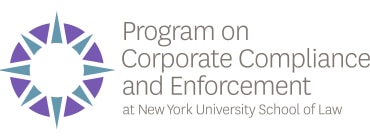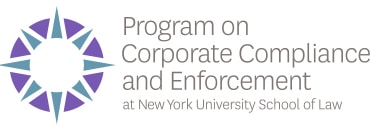Tag Archive for: NYU Law

Are We In a Compliance Arms Race?
Blog Over at the NYU Law's Compliance and Enforcement blog, ES CEO Azish Filabi has written a guest post on whether companies are in a compliance arms race-- and the detrimental impact it can have on organizational culture and ethics.
Over at the NYU Law's Compliance and Enforcement blog, ES CEO Azish Filabi has written a guest post on whether companies are in a compliance arms race-- and the detrimental impact it can have on organizational culture and ethics.

Crosspost: The (Il)legitimacy of Compliance?
BlogCross posted from NYU Law's PCCE's Compliance & Enforcement blog.
Each new compliance scandal triggers something of a “what were they thinking” response among those who consider it self-evident that sensible people inside a business organization would try hard to avoid behaviors that can bring such serious legal and reputation harm. So it is with the current subject of fascination, Wells Fargo. “Salespeople” (many of whom were branch employees serving customers’ basic banking needs) created millions of unauthorized customer accounts of various sorts in order to generate fee revenues. While some corporate legal violations are implicitly blessed from above because any sanctions can be seen as just the cost of doing business, such was probably not the case here.

Crediting the Behavioral Approach
Blog This piece has been cross-posted from the NYU Law Compliance and Enforcement blog.
This piece has been cross-posted from the NYU Law Compliance and Enforcement blog.
By: Timothy J. Lindon, Vice President and Chief Compliance Officer at Philip Morris International Inc.
The compliance message to companies from Washington is practical and encouraging. Regulators are not looking to reward check-the-box programs or companies that simply say the right things about integrity in their Codes of Conduct. They are looking for innovative approaches that work to prevent misconduct in the real world, and can be measured.
The problem of course is identifying and measuring what works. We have lots of compliance metrics like training completion rates and the number of helpline calls, but none of them measures fully the impact of our programs on ethical decisions by individual employees. In fact, research shows that many of the activities credited under the federal sentencing guidelines may actually be counter-productive. For example, training that is regarded by employees as a check-the-box exercise is viewed as insincere and undermines compliance with policies.
So what works?
